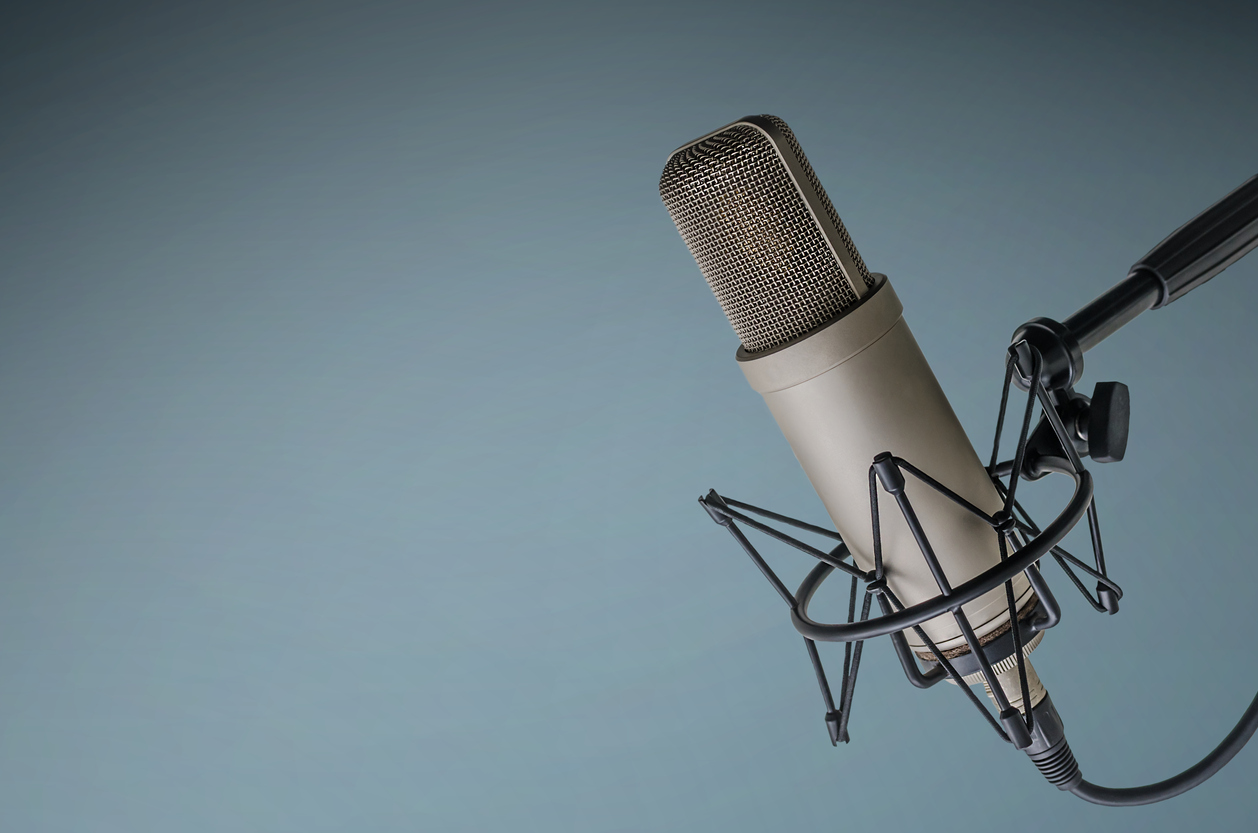It’s no secret that podcasts have taken over as one of the biggest players in the audio world. Just last month, Podcast Insights reported that there were over 630,000 podcasts and that over 44% of the U.S. population has listened to a podcast (Podcast Insights). And researchers are predicting that those numbers are only going to continue to grow. So, as a marketer, you may be wondering: Should I start podcasting? What are the benefits of a podcast? What audiences can I reach with this new content channel?
Over the past year, we launched a podcast at my company as a key channel to engage our executive audience. When we decided we wanted to start a podcast, we had very minimal knowledge of where to begin. But after conducting some research, we found that it doesn’t take much to start. The key is to have a content focus and a theme that works for your important audiences. For marketers who are interested in getting into the podcast game, here are some lessons I learned from my journey.
3 Benefits of Podcasting for Your Business
- You can gather great insights from key clients. In our podcast, our CEO sits down with some top CEOs to hear their leadership stories. In doing so, we’ve been able to learn about the obstacles they’ve faced and the challenges within their industries – it’s good intel. Understanding what difficulties our clients have struggled with and the lessons they’ve learned has allowed us to become more facile at connecting what we do to how executives think. As marketers, these insights have also sparked new ideas for blog topics, research articles, and other types of content that we can create that addresses these challenges in a way that resonates with our target audience.

now available on iTunes and Spotify
- It’s a channel that will help you break through the clutter and connect differently with your audience. Podcasting is easy to digest and a clear way to tell a story. It allows you to interact with your audience in a different way than text. Through audio content, emotions can be heard and felt, and the conversational dynamic adds depth to the story. It’s modern marketing 101. Podcasters can be their authentic selves, creating a sense of connection for the listeners. Our audience clearly likes the opportunity to listen to these insights, based on our engagement numbers, and it complements our other channels.
- It positions us as experts and thought leaders. By conducting these conversations, it demonstrates both our expertise as well as the interviewees. Being seen as a credible source can lead to a larger followership.
3 Things to Consider When Starting a Podcast
One frequent question that people ask when starting a podcast is “How do I make my podcast stand out from others?” This isn’t always a matter of reinventing the wheel to be seen as unique and gain a large followership. Rather than trying to crack the code on how you can get your podcast on the iTunes Top 10 Podcasts chart, think about what you can do to ensure you have a high-quality podcast with valuable content for your audience. Here are some things to consider before starting your podcast.
- Audio quality can make or break a podcast. If you have the best content in the world but low audio quality, odds are listeners won’t even give your podcast chance. There are too many podcasts available for your audience to spend their time listening to a low audio quality podcast. Make it your first priority to invest in the proper equipment. A good microphone, a laptop, and an audio editing and recording software like Audacity are the basics you will need.
- Tell a story. If you are interviewing someone, you don’t want to get caught up in a “Q and A” style approach. This can be boring, and your audience can lose interest. Think about the structure of a story: there is a beginning, middle and end. You want to be able to communicate the experience of an event and keep your audience engaged while doing so. If each episode feels like a story rather than a lecture, your audience will keep coming back for more.
- Block time to talk with the interviewee prior to the recording. Preparing for each episode is critical and setting up some time to talk with the person whom you are interviewing before the episode will make the conversation better. You should also share what the structure of your podcast is what questions you will be asking, how the flow of the dialogue is intended to be, etc. The better prepared you both are, the easier it will be to have a conversation in front of the microphone.
As marketers, we all want to build better relationships with our audience by delivering high quality, engaging content. Podcasting allows you to be your authentic self and to build that connection and keeps your audience coming back for more. Not only is podcasting a great channel for sharing content, but it can open the door for exciting new business opportunities and a whole new wave of marketing gravity for your company.


